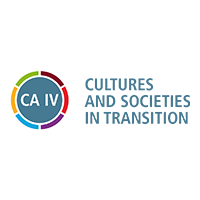Conceptual (Re)Locations of the ‘Global South’
What is the Global South? Who speaks about it, when and where, and how is the concept appropriated in different regions, by people, or in cultural productions who and which are part or constitutive of the Global South? What are the benefits and limitations of the concept? How has its meaning shifted and how has it been transformed over time? These were some of the key questions addressed and discussed during the workshop ‘Conceptual (Re)Locations of the “Global South”’, funded by the CA IV - Cultures and Societies in Transition and the Global South Studies Center and organized by Sinah Kloß (University of Cologne). The international workshop took place at the University of Cologne from 20-21 June 2016 and contributed to the refinement, systematization, and theorization of the concept ‘Global South’ across disciplinary boundaries. Its interdisciplinary approach created a space for dialogue on the increasingly popular term and concept. During the two days of workshop, ten participants and 25 guests discussed how nuanced approaches and conceptualizations of ‘Global South’ may address global relations of power and existing inequalities, rather than to refer to the Global South as a mere substitute for ‘Third World’ or ‘Developing Countries’. They analyzed what the Global South and respectively the Global North means, how and in which contexts the Global South is constructed and referred to, and which role migration, (im)mobilities, and cultural flows have on definitions of Global South and Global North. The academic disciplines represented were, amongst others, Social Anthropology, Sociology, Political Geography, Romance Studies, History, Gender Studies, Linguistic and Literary Studies, and Art History.
In the panel The ‘Global South’ as Heuristic Concept: Development Theory and Epistemic Inequalities (panel chair: Franz Krause, University of Cologne), Cláudio Costa Pinheiro (Federal University of Rio de Janeiro, Brazil), Marcin W. Solarz (University of Warsaw, Poland) and Syed Farid Alatas (National University of Singapore) discussed the heuristic relevance of the concept Global South, the (Global) South as an ontological condition and symbol of academic subalternity, as well as its capacity to address (or its risk of reinstating) eurocentrism.
In the second panel The ‘Global South’ in Social Sciences and Humanities (panel chair: Junko Maruyama, Tsuda College, Japan), Marcelo C. Rosa (Universidade de Brasilia, Brazil) and Nina Schneider (University of Cologne) continued the discussion on methodological challenges concerning the concept, highlighted the dangers of misappropriating it, emphasized the role of engaged intellectuals and discussed the (Global) South as an intellectual opportunity.
In the panel The Global South in the North? (panel chair: Andrea Hollington, University of Cologne), Roberto M. Dainotto (Duke University, USA), Madina Tlostanova (Linköping University, Sweden), and Ipek Demir (University of Leicester, UK) highlighted the relationality of Global North and Global South, the risks of reproducing dualist notions of world order, and discussed the Global South in terms of its capacity to challenge power structures and as mode of resistance.
The fourth panel (Re)Creating the ‘Global South’ (panel chair: Sarah Albiez-Wieck, University of Cologne) focused on cultural practices and representations, particularly unequal flows and the mobilities of art, literature, and artists. The contributors Leon Wainwright (Open University, UK) and Alexandra Ortiz Wallner (Humboldt University Berlin) also critically engaged with the relevance of materiality in the (re)construction of South-South relations and the role of archives in creating new perspectives on the Global South.
The workshop ended with a general discussion on the diverse themes addressed during the two days. The organizer plans the publication of selected conference contributions. (by Sinah Kloß)
20 - 21 June 2016
Program_and_Abstracts_Workshop_Global_South.pdf
